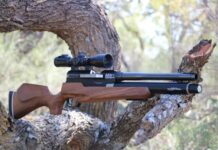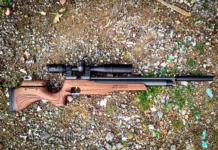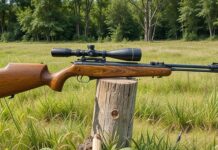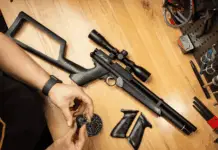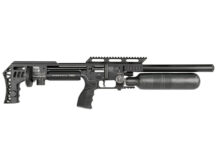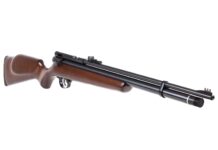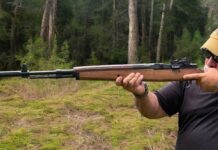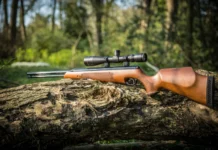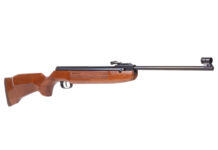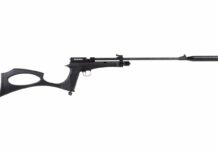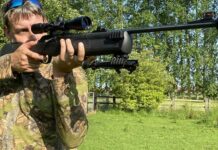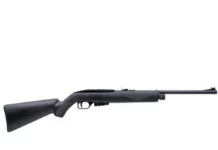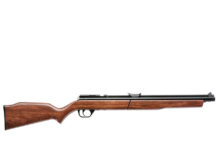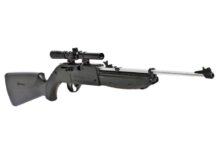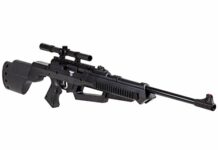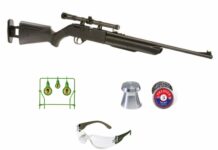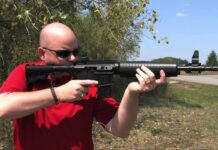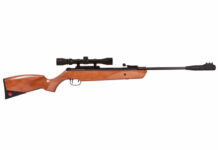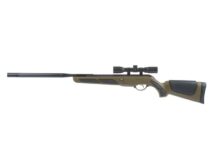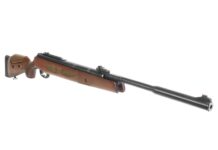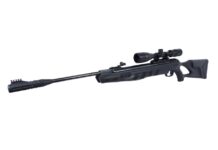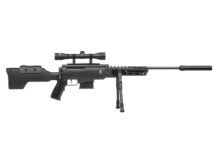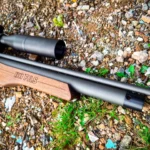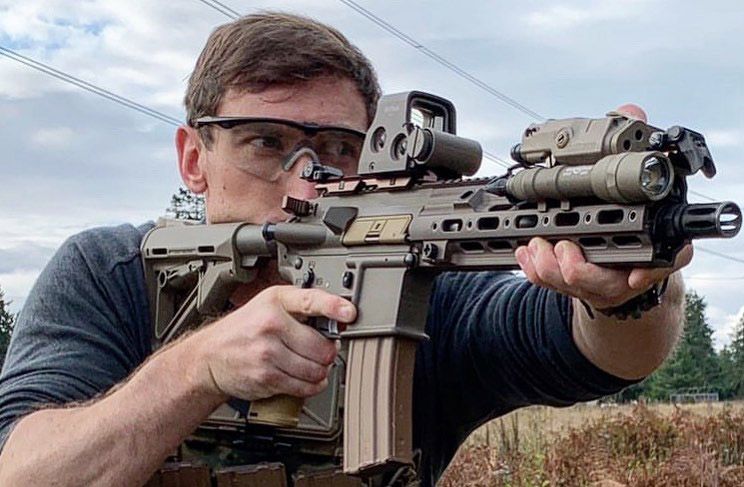
We recently sat down with Michael Jones, AKA Garand Thumb to discuss the tremendous success of Garand Thumb, goals for the future, his experiences with the AR platform, what he looks for in a hard-use rifle, the importance of training, and more.
Table of Contents
- 0.1 Q: Michael, did your professional background as a survival instructor lead you to the idea of Garand Thumb, and how does that role inform what you do with your videos?
- 0.2 Q: People seem to gravitate towards you and guys like Aaron Cowen at Sage Dynamics for information they can trust. What is your philosophy on what you feature in your videos? I can imagine that a lot of products come your way, both good and bad.
- 0.3 Q: It can be hard to tell good information from bad. What should we be looking for in a firearms reviewer?
- 0.4 Q: What is your impression of the AR today as of late 2021? Have we reached the end of its evolution?
- 0.5 Q: With so many AR accessories out there, is there a way someone can separate something that can present an actual mechanical advantage versus a gimmick? How do you determine that?
- 0.6 Q: What separates a hard-use gun like a Knight’s or LMT from a rifle from something that’s simply fun like a BRN-180? Is there a tip-off that indicates it’s not quite something you’d bet your life on?
- 0.7 Q: You’ve done some great videos on general-purpose rifles. Can you give our readers an overview of some of the things you’d look for in that sort of build?
- 0.8 Q: You close many of your videos with talk about training. Can you talk about why that’s so critical, and what is a good baseline to achieve?
- 0.9 Q: Wrapping up, I can recall reading that when you started, you described wanting to spread the word about guns and gear, share the good and bad with a dash of humor, and grow a community. I feel like you’ve done a great job meeting those goals. Would you agree, and what are your plans moving forward?
- 1 ###
Q: Michael, did your professional background as a survival instructor lead you to the idea of Garand Thumb, and how does that role inform what you do with your videos?
Garand Thumb – The original idea for Garand Thumb was that I thought that Garands were really cool, and I was going to make an entire channel about shooting them, but that was super short-sighted (laughs). As such, we are where we are now. (laughs).

In terms of my current job, when I first started, I was a SERE guy – not a whole lot to do with shooting. In my current job, yes, I shoot more. That said, Garand Thumb has never centered around my military service.
Yes, I am in the military, and I am very proud of that, but I try not to make that the focal point. I serve because I want to serve and because I enjoy it.
What gives Garand Thumb its identity is the idea that someone can be informed about what we discuss without being in the military. I believe it is a citizen’s duty to be well informed on this kind of stuff. Being deadly is an American trait, right? It’s something that defines us. The idea of a warrior who is also a gardener feels like a very American thing.
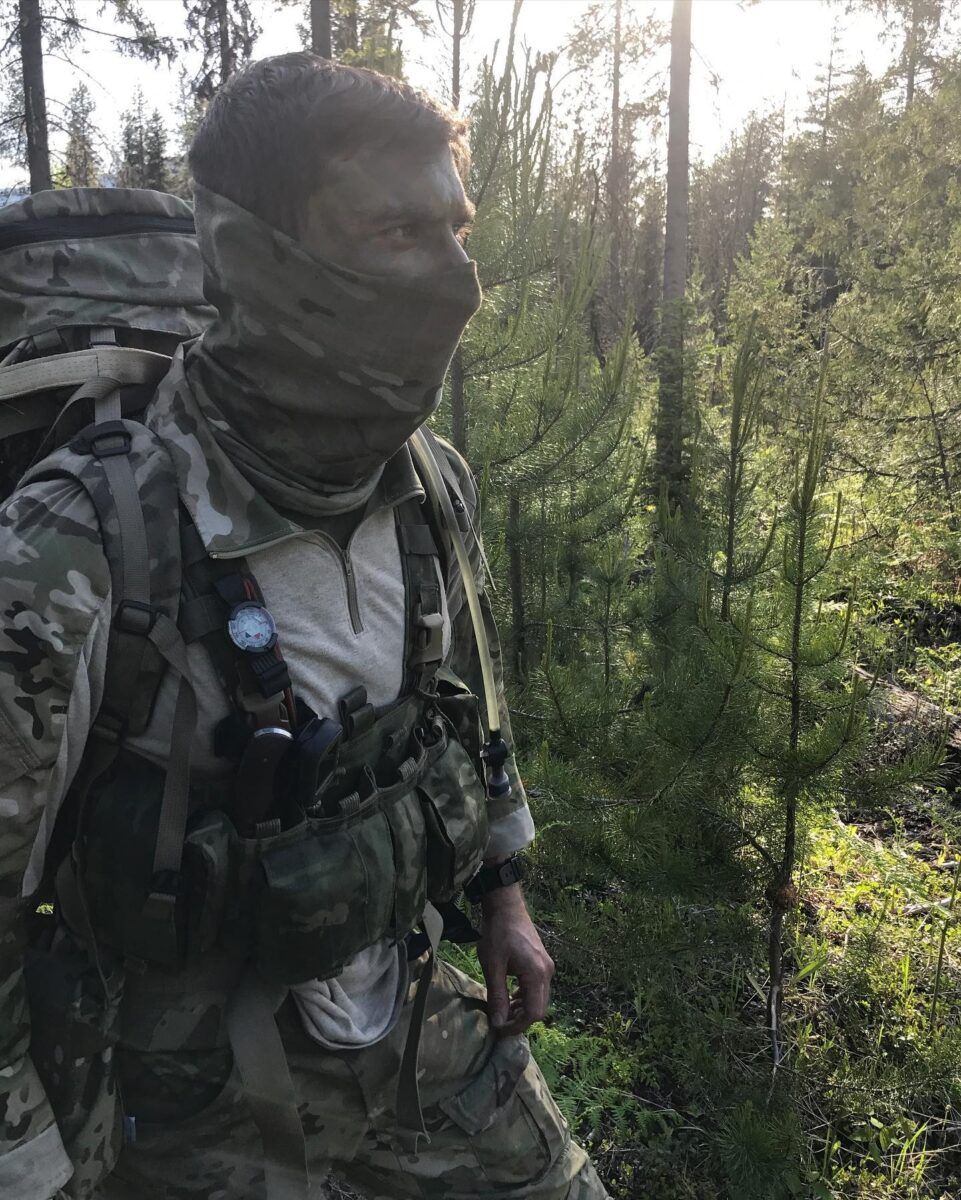
Q: People seem to gravitate towards you and guys like Aaron Cowen at Sage Dynamics for information they can trust. What is your philosophy on what you feature in your videos? I can imagine that a lot of products come your way, both good and bad.
Garand Thumb – I don’t ever want to feel like I am being unfair to a company, whether I do or don’t review an AR, or even if we go even deeper into a firearm’s details. I think Aaron Cowen is probably the best reviewer out there, and he and I have talked about this. I think that when it comes to a gun, with a sample size of one, it can be very difficult to fully ascertain if an issue is indicative of larger issues.
For example, DSA, when I got their FAL, within 80 rounds, I sheared the extractor. The question becomes is this something that is endemic of the rifle, and is something that it encounters often, or rather, is it a one-off?
Every company will produce a lemon, and you will occasionally get one. At the end of the day, sometimes things just happen. So for me, it’s always been difficult, and there is somewhat of an ‘artistic’ approach to what I do and don’t put into a review. I am very careful about what I put out. I want to be careful not to make mistakes.
For example, if I see an accuracy problem with a gun and I claim it as being representative of that entire line, that would be a huge misstep if that’s not the case and it was actually the fault of me as a shooter, the ammunition, the optic.
There’s just so many variables and as such, I just have to be very, very careful. The information that I share has been double, triple, often quadruple checked beyond just me, but with other sources who shoot and have the same builds, before I will put information out. Making sure I verify, cross my T’s and dot my I’s is very important to me. Despite that, sometimes I still do get things wrong. Unfortunately, I am just one man running all of this and it sometimes happens, but overall, I am very proud of the product that we put out.
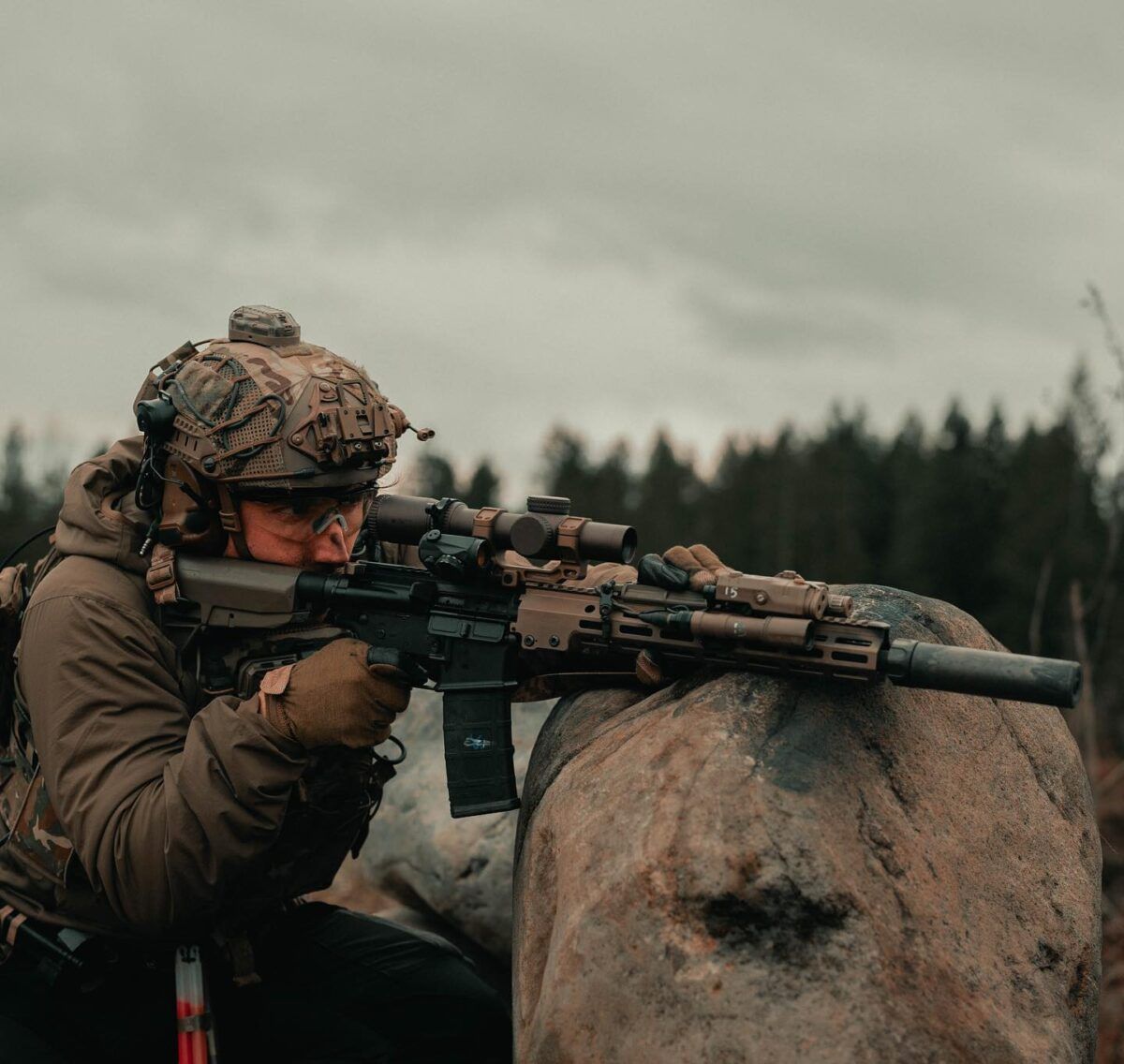
Q: It can be hard to tell good information from bad. What should we be looking for in a firearms reviewer?
Garand Thumb – It can certainly be difficult. I will say that there are an awful lot of good, smaller reviewers out there too…people who have a lot of time behind a rifle, and who will have put more time on it that I have. You shouldn’t just trust one source. You should not watch one of my videos and take that as complete gospel. You should cross-check with written reviews. You should look on forums. I spend a lot of time on forums as they are an excellent place for people to talk and exchange information.
The bottom line is you should be cross-examining any information you receive, just like you do with the local news. I’m never going to read a single news story and declare that to be the truth. Rather, I will examine it from multiple different angles, as there are always biases there that need to be recognized. It’s critical that you be a discerning consumer and spend your money in the best way possible.
Q: What is your impression of the AR today as of late 2021? Have we reached the end of its evolution?
Garand Thumb – I think, without a doubt, the AR-15 is today one of the lightest, most accurate, reliable weapons ever to be produced in the history of mankind. It is a phenomenal weapon in every way, shape, and form. It’s been proven in multiple conflicts, multiple areas throughout the world. Of course, everything is give and take, but overall, it has an excellent balance and is one of the greatest general-purpose rifles that has ever been produced.
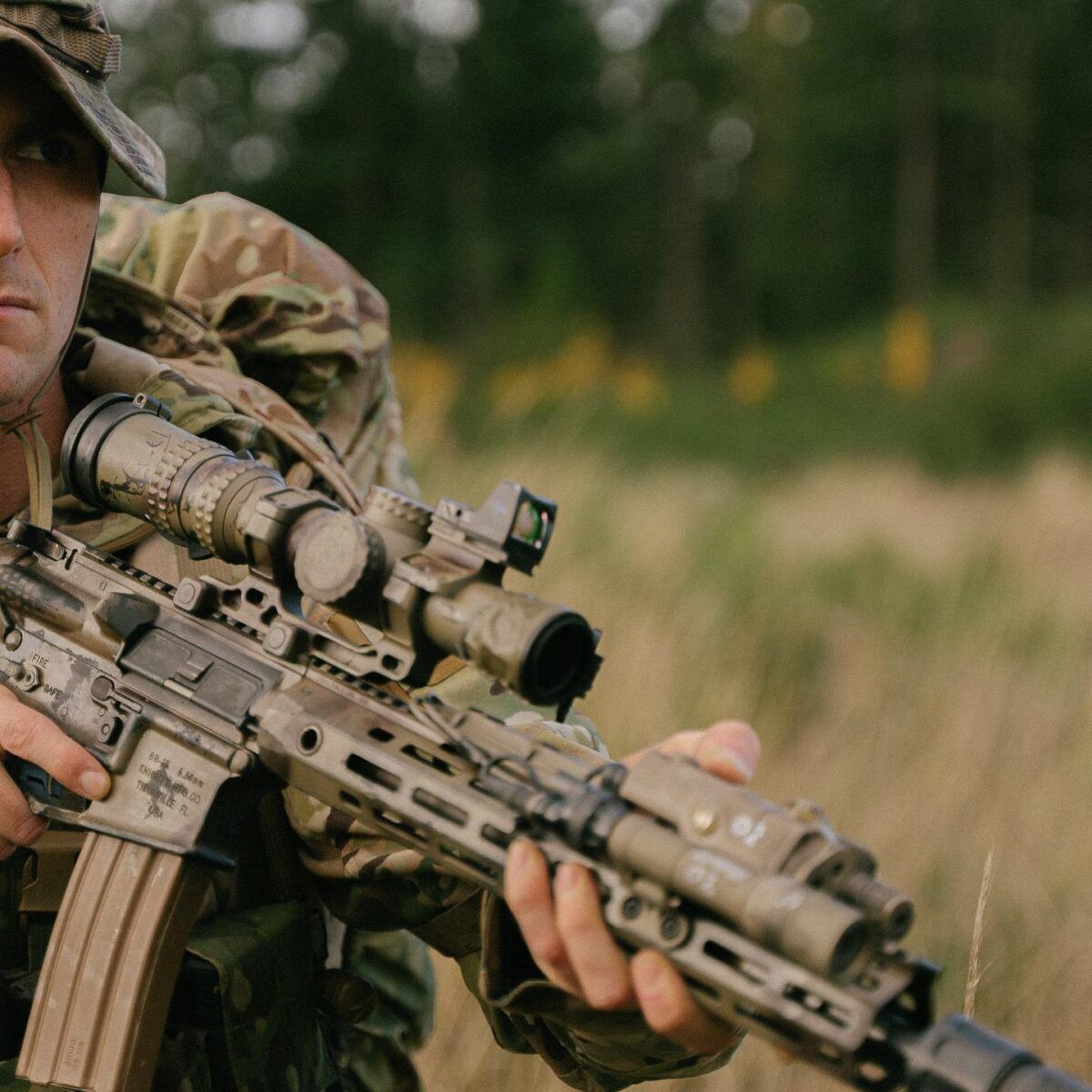
As to your question of has the AR-15 peaked, I think that’s difficult, as we have to ask then, “well, what is an AR-15?” I say that because there are offshoots now. We have things like the Knight’s Armament SR-15, which is an excellent update that addresses some of the weak points of the AR-15. We also have LMT, which also features excellent updates and is similar to Knight’s Armament in some ways. We also have the Heckler & Koch 416, which some would argue is not an AR-15 but is in many ways is very similar.
I think we are going to see a continued evolution of the AR-15 as time moves on. I think the SR-15 and the LMT are natural evolutions of the AR-15 system, with material added and removed in certain areas, and things done to improve them. The bolts have been improved on both when compared to a standard AR-15. The gas system and how it is installed on the Knight’s is also quite superior to the current system that most builders are using. These are things that will be slowly adopted over time as the AR-15 evolves and becomes an even better product.
Q: With so many AR accessories out there, is there a way someone can separate something that can present an actual mechanical advantage versus a gimmick? How do you determine that?
Garand Thumb – (Laughs) It certainly takes time, and it’s one of my jobs, right? One of the things I do is evaluate new things as they come to market. Often times, they are gimmicks….but that’s ok. When Thomas Edison invented the lightbulb, it wasn’t done overnight. For every thousand failures, you end up seeing something good.
I do argue with my camera guy a lot, as he is very intelligent when it comes to firearms. I’m a bit biased, but I believe that weapons that have been proven over time are typically ones that I trust. Time and service matter to me. I usually lean towards weapons that have seen real service with militaries or large agencies. Alternatively, they’ve been allowed to mature, and large batches have proved that there is consistent QC, and have proven themselves to be reliable over a wide variety of terrains and weather types.
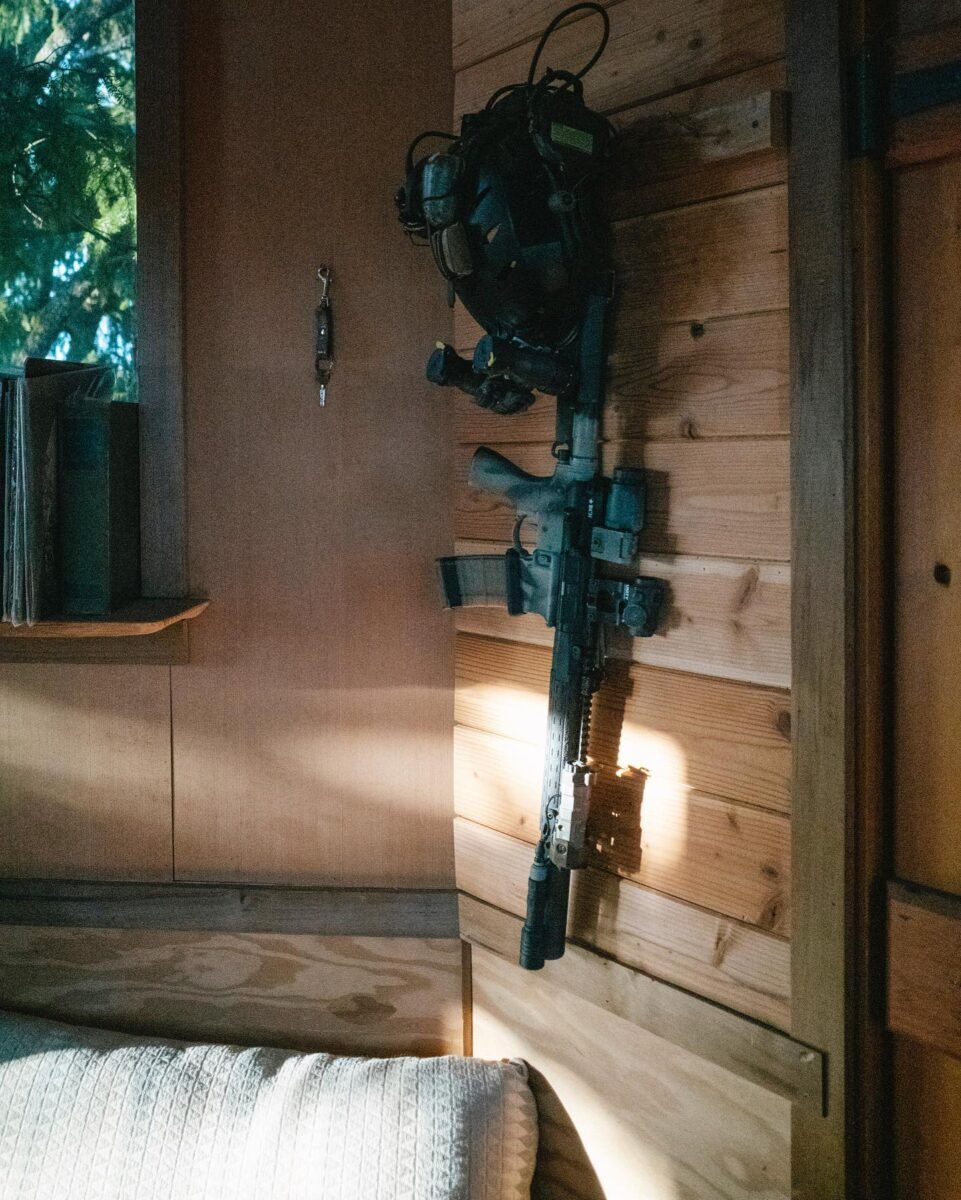
Q: What separates a hard-use gun like a Knight’s or LMT from a rifle from something that’s simply fun like a BRN-180? Is there a tip-off that indicates it’s not quite something you’d bet your life on?
Garand Thumb – Something like the BRN-180 has a couple of design flaws that preclude it from being considered for ‘super serious work’ that I talk about in my videos. It is a very fun rifle, but it does allow for the ingress of dirt and other material into the action due to how it was built. It’s very well-built, but there are some problems.
Moving on to the AR-15 side, it can be a little bit more difficult to determine. In 2021, companies have gotten good at making a quality AR. It used to be back in 2009, it was much harder to find a well-built rifle, but nowadays, manufacturing processes have gotten so good. There are so many good OEM barrel makers out there, now it’s not hard to source really quality parts.
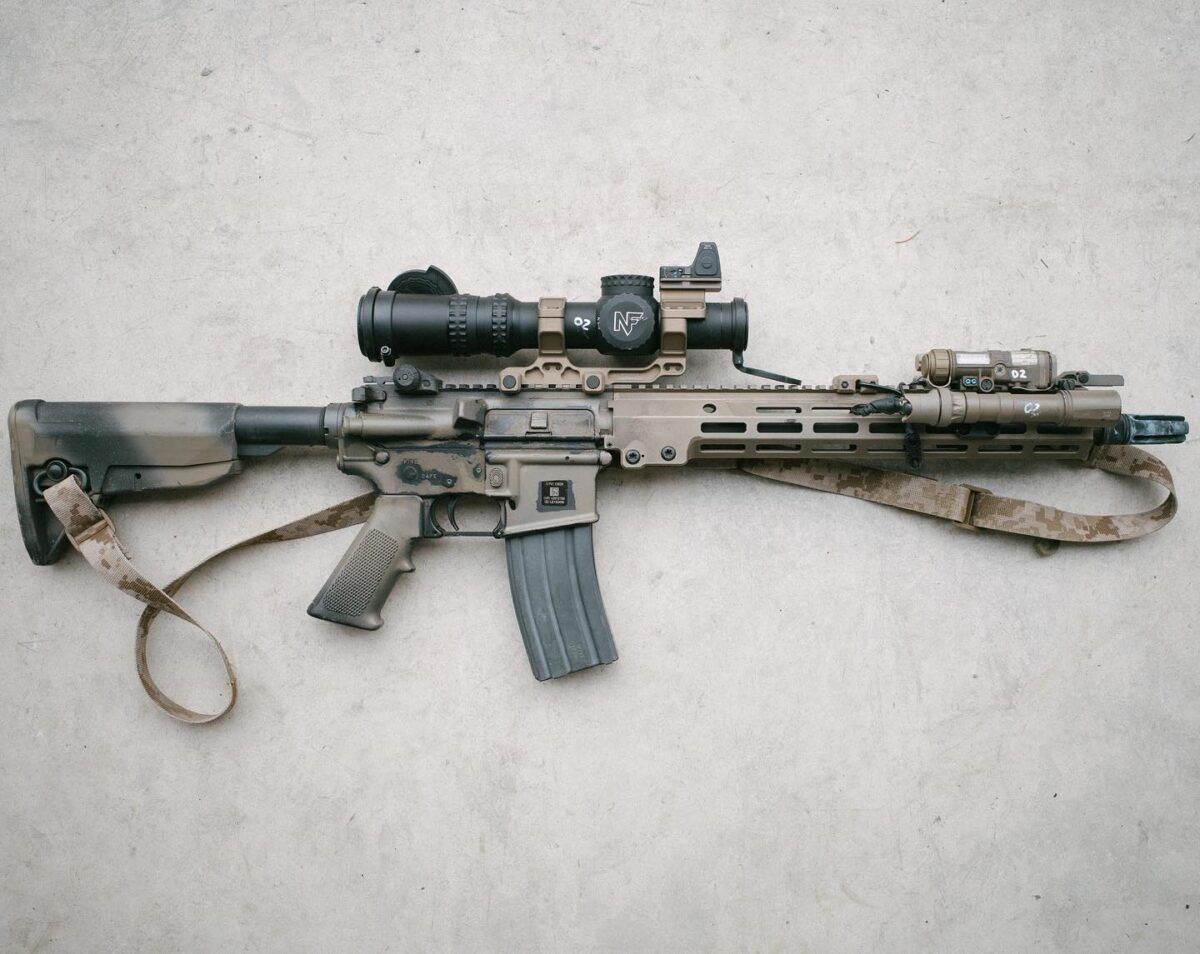
That said, for a rifle that I am going to trust my life to, I typically stick to manufacturers and rifles that have seen real service over a long period of time, in a wide swath of areas, and ammunition types. I think that’s really the true test, and it is the criteria I personally use.
Now, I am sure there is a really small company out in Texas making ARs that are phenomenal. In fact, what they make might be better than any other AR-15 out there, but unfortunately, that’s going to be difficult to ascertain without me spending a lot of time on the rifle…or without a lot of people using it for a long period of time. Due to that fact, it’s going to be hard to truly ascertain that it’s the best, and it will probably never be adopted, because it’s a small builder that is making it.
So, this makes it difficult. My criteria make things somewhat limiting, and I acknowledge that I have some problems in the way I ascertain what weapon is ready for ‘hard use.’ That said, while my criteria isn’t perfect, I do find it to be generally correct.
Q: You’ve done some great videos on general-purpose rifles. Can you give our readers an overview of some of the things you’d look for in that sort of build?
Garand Thumb – If you’re looking to build a do-it-all rifle, you have to accept the fact that it will not fit every scenario. That’s ok. Instead of worrying about if it fits in every scenario, you should be focused more on yourself. Having the correct training is what really matters. Take Fallujah for example, where Marines were kicking down doors with 20″ M-16s. They made it work by training at a high level. Doing that, they were able to make sure they could effectively work with what they had. That’s what’s certainly going to come into play when building a general-purpose rifle. You will need to understand the limitations that you are going to run into, and then train accordingly.
Generally, I would say anything from a 14.5 to 16″ mid-length or carbine is going to do you really well. Those systems are well proven, and those barrel lengths are proven to provide excellent velocity and good terminal ballistics from most ammunition. I’d recommend finding a good manufacturer and then remembering to stay away from gimmicky products. Stay with furniture and rails that have seen professional use and you’ll be in a good position.
Make sure that you save enough money so that you can purchase an optic and ammunition. If you don’t have money for the ammunition, there’s no way you’re going to be able to train at a high level. So, if that means you buy a cheaper AR-15 so that you save money for a red dot and ammunition, I’d rather you do that than see you drop the cash on a higher-end rifle and then not have anything to train with.
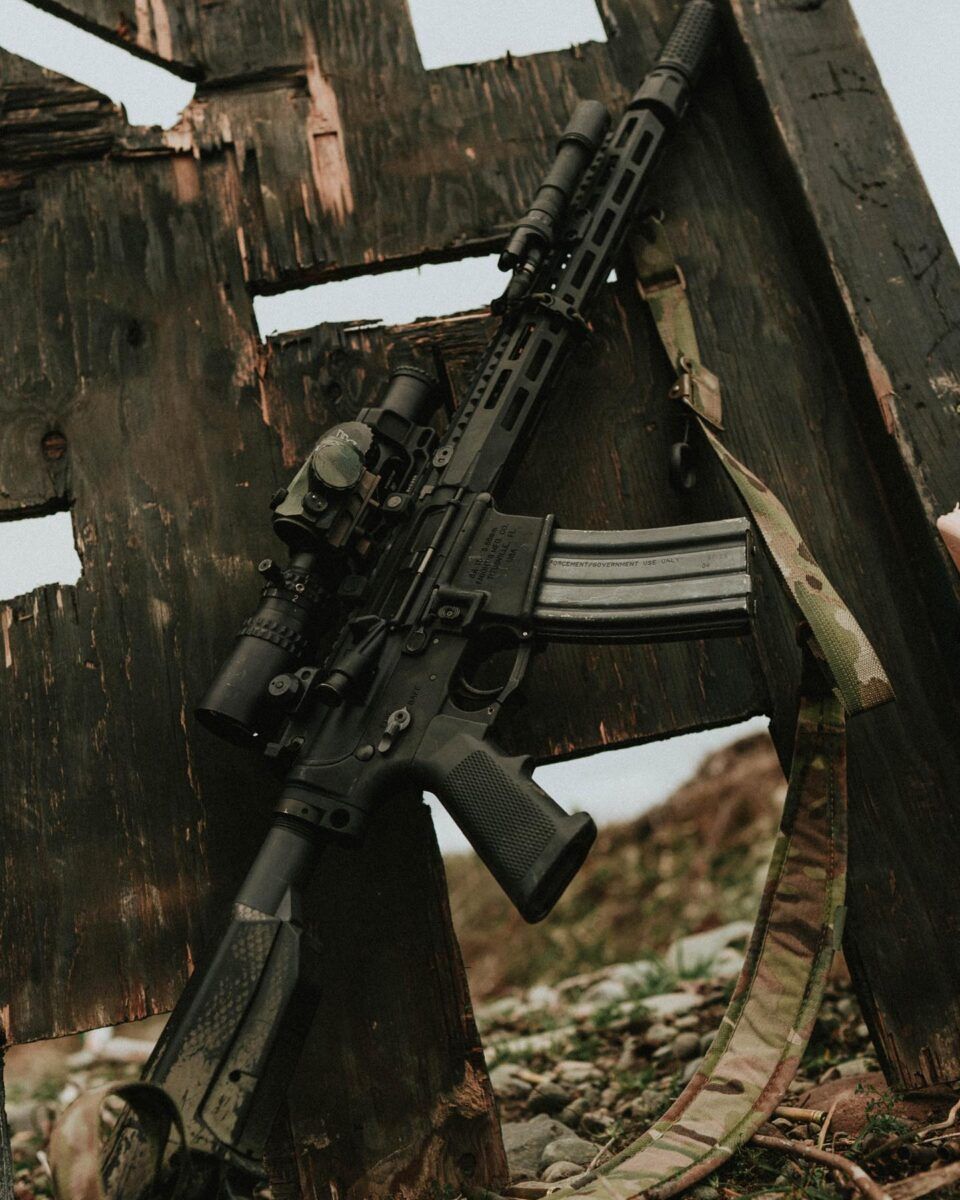
Q: You close many of your videos with talk about training. Can you talk about why that’s so critical, and what is a good baseline to achieve?
Garand Thumb – I don’t golf, but if I was to buy the best set of golf clubs in the whole world, and then head to a golf course, I’m not going to be able to do shit with them. I’m going to suck. The clubs are not going to be able to perform as they should because I don’t know how to swing them properly. I don’t know how to grip the club. I don’t know what the hell I am supposed to do with my head and my body. It’s going to be a mess, despite them being the best clubs money can buy. The same thing applies with a rifle. If you buy the best AR or even a good AR, and you don’t have any of the training to back it up, it’s nothing. It’s a tool that relies completely on you.
If you have no professional training, I would definitely spend the money and commit to attending a good training course with someone. You really want to vet who you choose, as it seems like everyone is teaching these days.
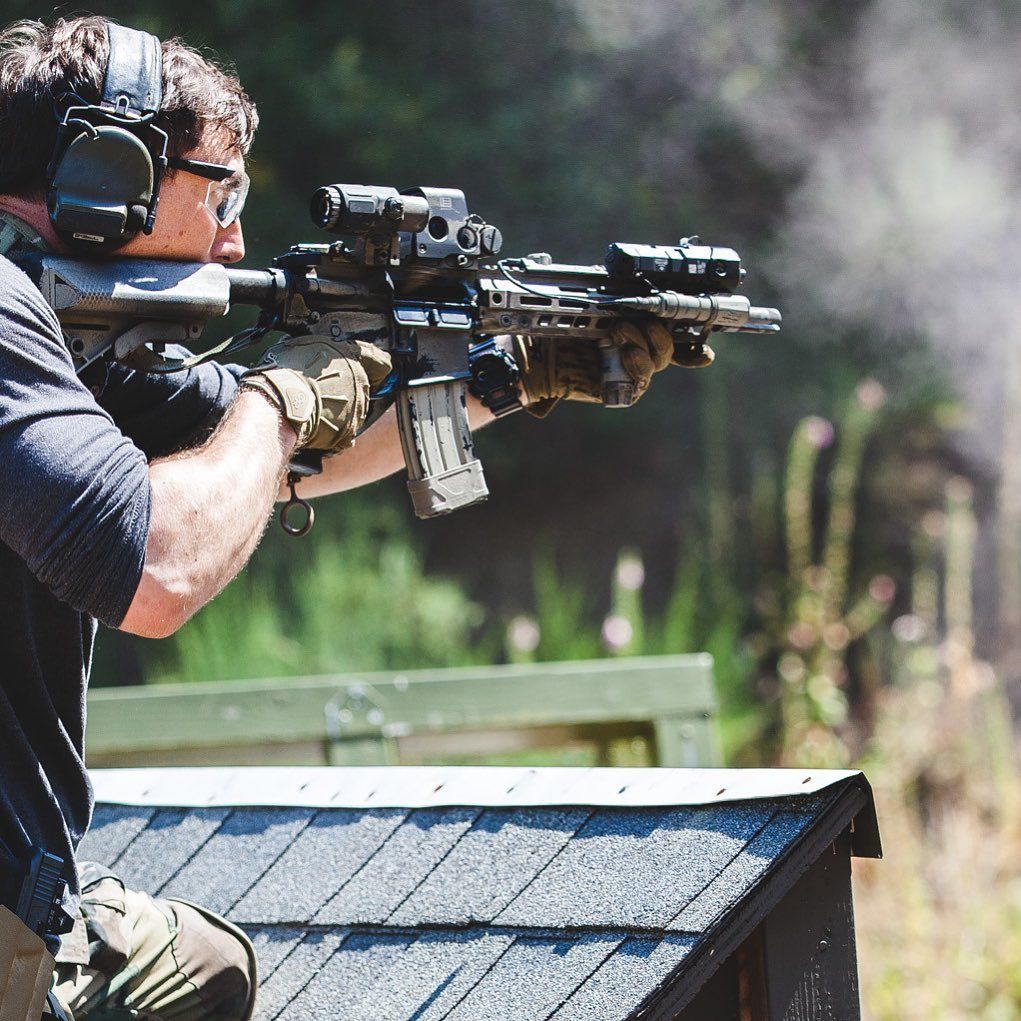
Places like BAER Solutions, Kagwerks, and guys like Pat McNamera have been there and done that, and they can give you a good launching point. You can take a one, two, or three day class with them, and from there, you will have a good base of knowledge to be able to start to teach yourself, and understand what you are and are not doing well. It’s also a case where ‘if you don’t use it, you’re going to lose it. Shooting is a perishable skill. It’s unfortunately something that you have to keep up with. That kind of sucks, but that’s the name of the game. Nothing is free in life.
Garand Thumb – That’s a good question. Like everything, goals evolve. As time goes on, just like anything else, things change. In the case of the content that I’ve been putting out from when I wrote that description around 2015-2016, things have changed. The goal now for me is to show firearms in an interesting way. My biggest goal is always going to be education, but I also want to show firearms interestingly. I want to make guns cool.

The reason for that is that I want to reach the younger generation and bring them in. Our rights and our ability to own these firearms will be completely predicated on the laws that will be voted in by a young population as they reach the voting age. So we need to reach out to them and show them why we have a passion for firearms. Perhaps they thought it was cool because they saw it in a video game.
But then, they search and see me shooting it and then realize that they too can own it. Before you know it, they’re watching Paul Harrell, Fieldcraft Survival, living in the woods, eating mushrooms and stuff (laughs).
My point is we have to bring a younger generation into the firearms community. Right now, that is my main goal and it’s why I stay on platforms that sometimes give me trouble. It’s because I want to bring in a wider audience, and I want to educate them that the 2nd Amendment never has and never will be about hunting or sports shooting… It’s about stopping those who would oppress us. That’s what makes Americans – Americans. We’re dangerous farmers, and we always will be.

